Having won the Speedway World Championship Final an unprecedented three times in a row (1968, 1969, and 1970) - a feat widely considered impossible - Ivan Mauger had to settle for the runner-up spot in 1971, beaten at Gothenburg by local star Ole Olsen Entering his fourth year with Belle Vue - the 'Aces' - Ivan started his 1972 campaign with a maximum points haul at home. He then beat fellow Kiwi, and boyhood hero, Ronnie Moore at the UK's top-ranking Internationale meeting at Wimbledon on 29th May, the prize for that particular victory being a new Jawa, which happened to be fitted with engine number '7069'. Ivan kept engine number '7069', tuned as usual by Guy Allott, but sold the original frame, which was replaced with frame number '4160', as seen here. After a gap of three years, the Speedway World Championship Final returned to Wembley in 1972. Ivan's route to the final had not been without its difficulties: principally broken bones in both hands sustained in a crash at the World Best Pairs Final in Sweden. With two of his major rivals hit by misfortunes – Ole Olsen crashing in his first race while Barry Briggs fell in his second, sustaining injuries that put him out of the meeting – Ivan found himself on 10 points by Heat 19, a single point behind Swedish rider Bernie Persson on 11 after all competitors had completed four rides. In his autobiography, 'The Will to Win', Ivan recalled: 'Persson was a tough, strong competitor, the white-jerseyed hope of truckloads of fans of under-achievers Cradley Heath. Locked in the memory bank was 1967 when his antics at Wembley played a part in my finishing third instead of at least making it into a run-off for the title. He certainly wasn't an opponent to whom I would have wanted to give an inch'. Ivan duly beat Persson into second place in Heat 19 to leave the two title contenders equal on 13 points, necessitating a run-off for the World Championship. Ivan again: 'Anything can happen in a two-horse race, so it would have been stupid to underestimate him. My focus was to try to ensure as far as possible proceedings moved along at my pace rather than his. 'The track staff pushed our bikes up to the starting gate and we walked side by side from the pits to the starting line to do the toss for gate positions with John McNulty, the Speedway Control Board manager. I won the toss and took gate two, which in theory put Persson on gate four. 'I could tell Bernie was really, really nervous and was anxious to get on with the run-off. Scandinavians sometimes don't like delays. He was first up, and I thought the longer I left him sitting at the gate the better so I went under the tapes and slowly rode a complete lap of the track before corning to the start. 'In such a situation, no matter who it is, you have to block out everything other than how you plan to execute. The delay wouldn't have suited Persson. 'He moved across the grid to around three and a half to be sure of positioning himself in a good bit of dirt. But I got settled on one and a half in another decent bit of dirt so it was tit for tat. 'At such a moment, what you need is self-control and self-belief. I knew what I had to do. When we finally came into line, everything went sweetly. I was quickly away from the tapes, able to choose precisely where I needed to be and to cover any move. 'World title wins are like kids. You love them equally, for different reasons. This, my fourth in five years, the third in four seasons as a Belle Vue rider, certainly felt pretty good. It had been a tough and often painful ride this time, but winning again was the best possible way to make it all worthwhile.' Ivan restored his 1972 World Final Jawa around 2000, the engine (it is believed) being rebuilt by Mike Farrell. The machine was left un-chromed, as Ivan considers that it rode better this way.
Having won the Speedway World Championship Final an unprecedented three times in a row (1968, 1969, and 1970) - a feat widely considered impossible - Ivan Mauger had to settle for the runner-up spot in 1971, beaten at Gothenburg by local star Ole Olsen Entering his fourth year with Belle Vue - the 'Aces' - Ivan started his 1972 campaign with a maximum points haul at home. He then beat fellow Kiwi, and boyhood hero, Ronnie Moore at the UK's top-ranking Internationale meeting at Wimbledon on 29th May, the prize for that particular victory being a new Jawa, which happened to be fitted with engine number '7069'. Ivan kept engine number '7069', tuned as usual by Guy Allott, but sold the original frame, which was replaced with frame number '4160', as seen here. After a gap of three years, the Speedway World Championship Final returned to Wembley in 1972. Ivan's route to the final had not been without its difficulties: principally broken bones in both hands sustained in a crash at the World Best Pairs Final in Sweden. With two of his major rivals hit by misfortunes – Ole Olsen crashing in his first race while Barry Briggs fell in his second, sustaining injuries that put him out of the meeting – Ivan found himself on 10 points by Heat 19, a single point behind Swedish rider Bernie Persson on 11 after all competitors had completed four rides. In his autobiography, 'The Will to Win', Ivan recalled: 'Persson was a tough, strong competitor, the white-jerseyed hope of truckloads of fans of under-achievers Cradley Heath. Locked in the memory bank was 1967 when his antics at Wembley played a part in my finishing third instead of at least making it into a run-off for the title. He certainly wasn't an opponent to whom I would have wanted to give an inch'. Ivan duly beat Persson into second place in Heat 19 to leave the two title contenders equal on 13 points, necessitating a run-off for the World Championship. Ivan again: 'Anything can happen in a two-horse race, so it would have been stupid to underestimate him. My focus was to try to ensure as far as possible proceedings moved along at my pace rather than his. 'The track staff pushed our bikes up to the starting gate and we walked side by side from the pits to the starting line to do the toss for gate positions with John McNulty, the Speedway Control Board manager. I won the toss and took gate two, which in theory put Persson on gate four. 'I could tell Bernie was really, really nervous and was anxious to get on with the run-off. Scandinavians sometimes don't like delays. He was first up, and I thought the longer I left him sitting at the gate the better so I went under the tapes and slowly rode a complete lap of the track before corning to the start. 'In such a situation, no matter who it is, you have to block out everything other than how you plan to execute. The delay wouldn't have suited Persson. 'He moved across the grid to around three and a half to be sure of positioning himself in a good bit of dirt. But I got settled on one and a half in another decent bit of dirt so it was tit for tat. 'At such a moment, what you need is self-control and self-belief. I knew what I had to do. When we finally came into line, everything went sweetly. I was quickly away from the tapes, able to choose precisely where I needed to be and to cover any move. 'World title wins are like kids. You love them equally, for different reasons. This, my fourth in five years, the third in four seasons as a Belle Vue rider, certainly felt pretty good. It had been a tough and often painful ride this time, but winning again was the best possible way to make it all worthwhile.' Ivan restored his 1972 World Final Jawa around 2000, the engine (it is believed) being rebuilt by Mike Farrell. The machine was left un-chromed, as Ivan considers that it rode better this way.
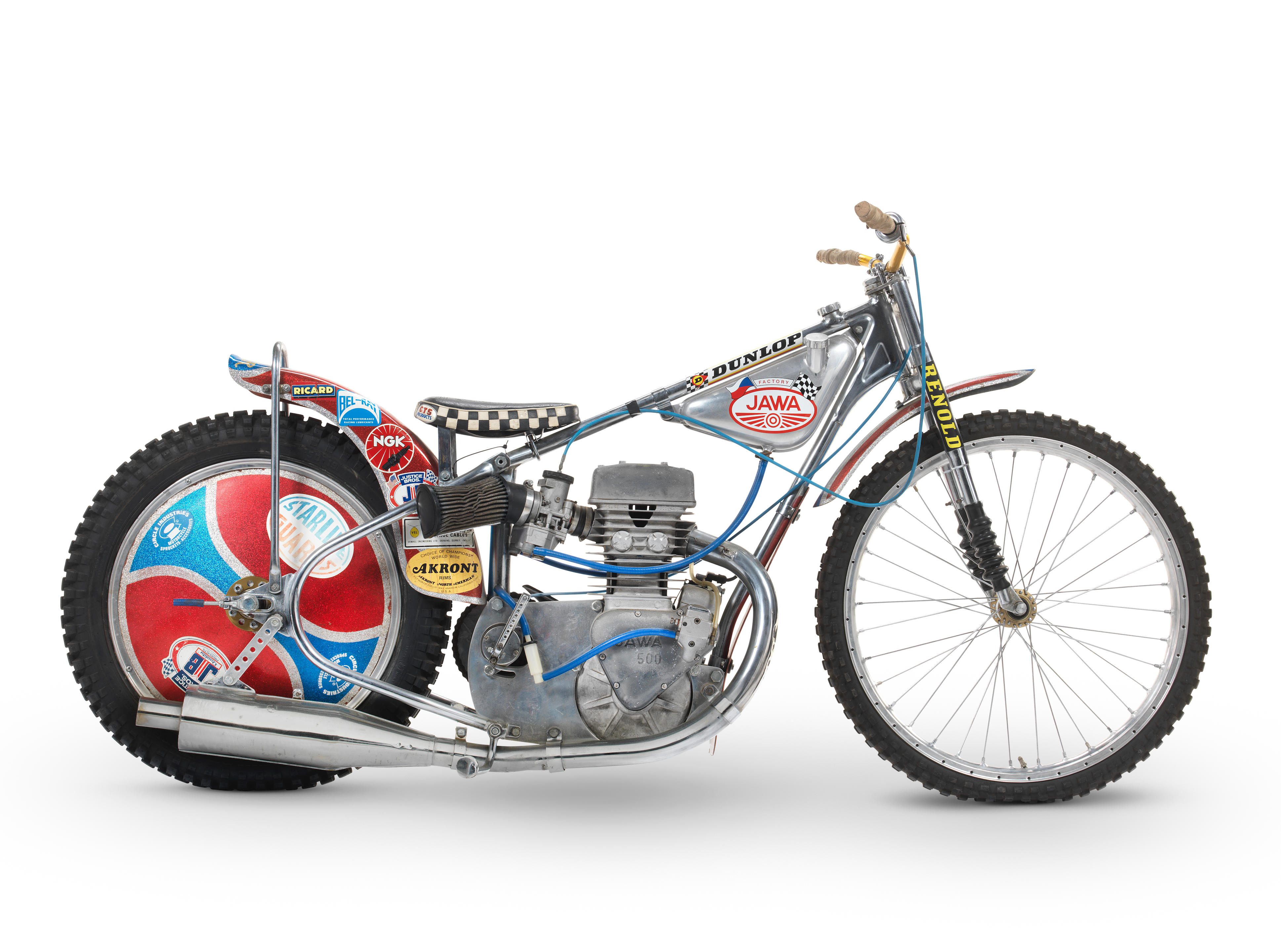
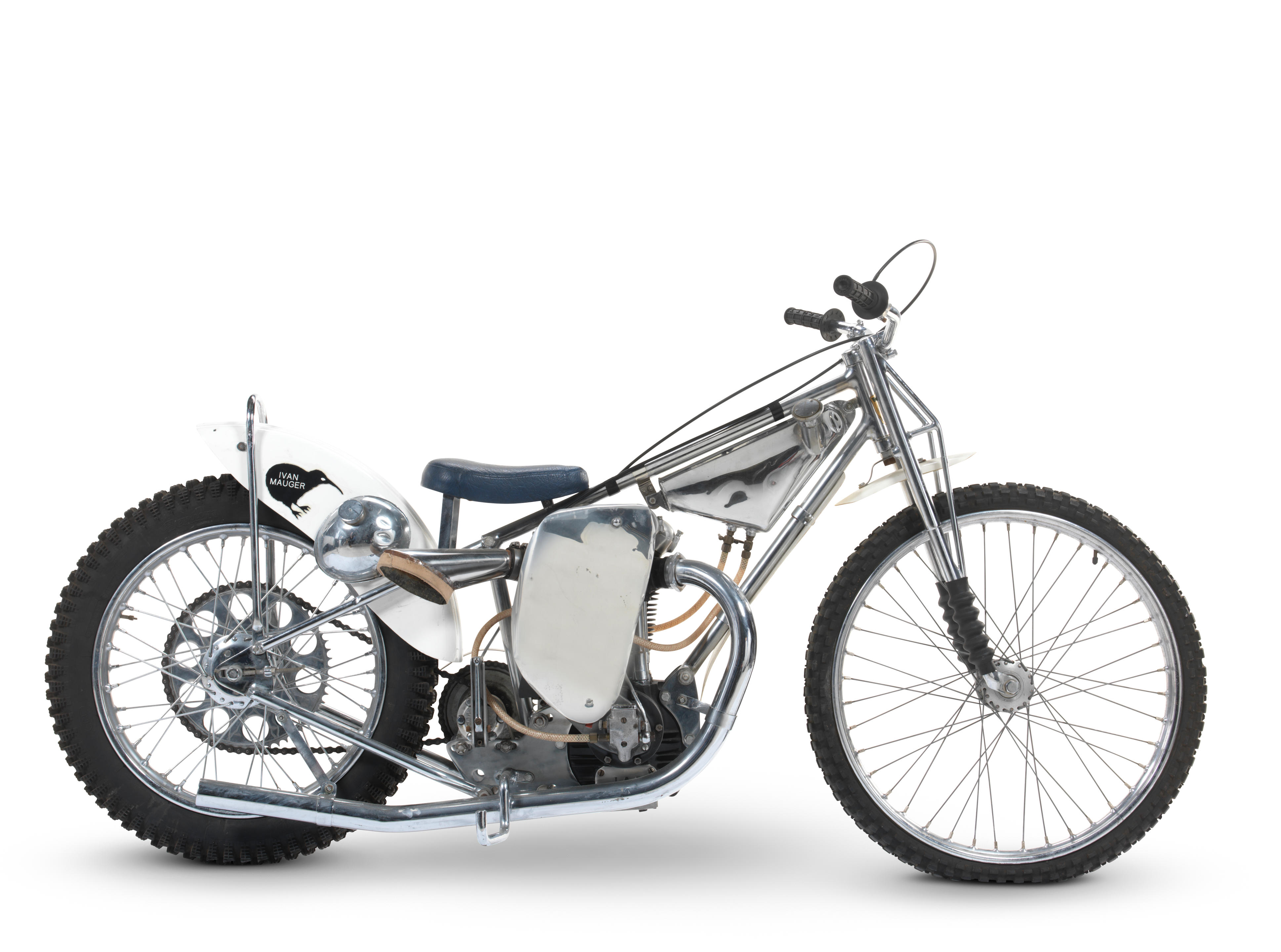


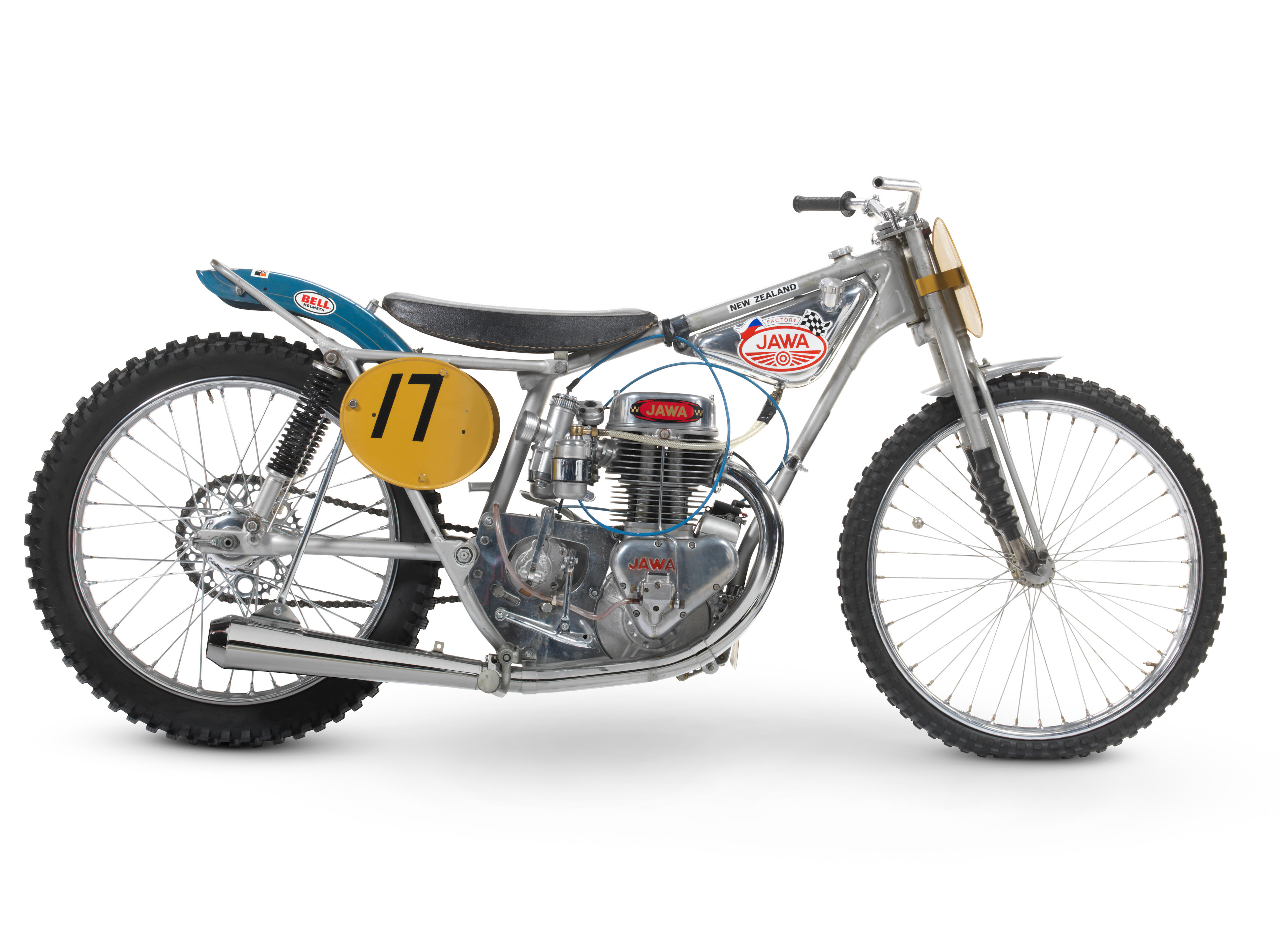
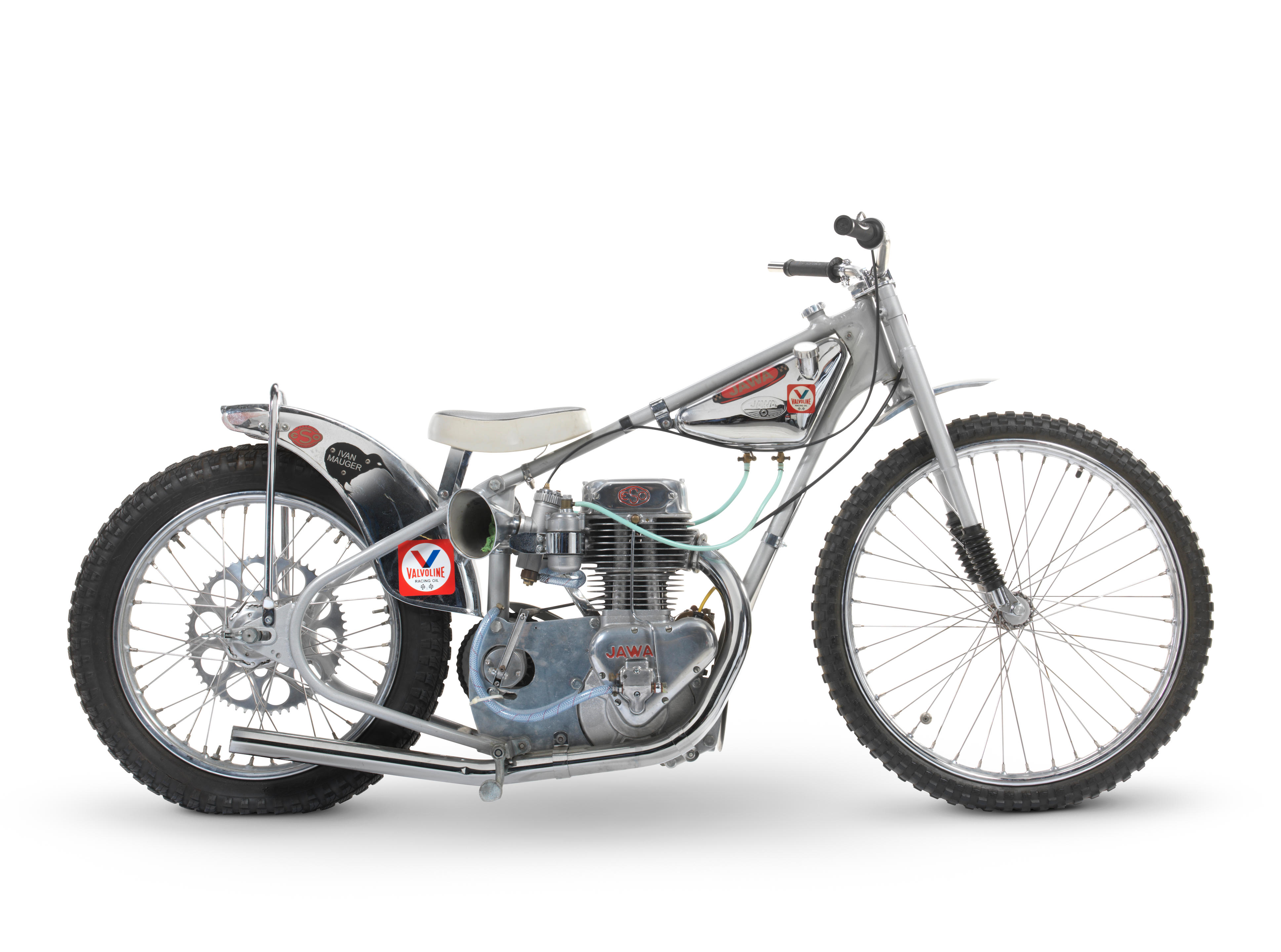
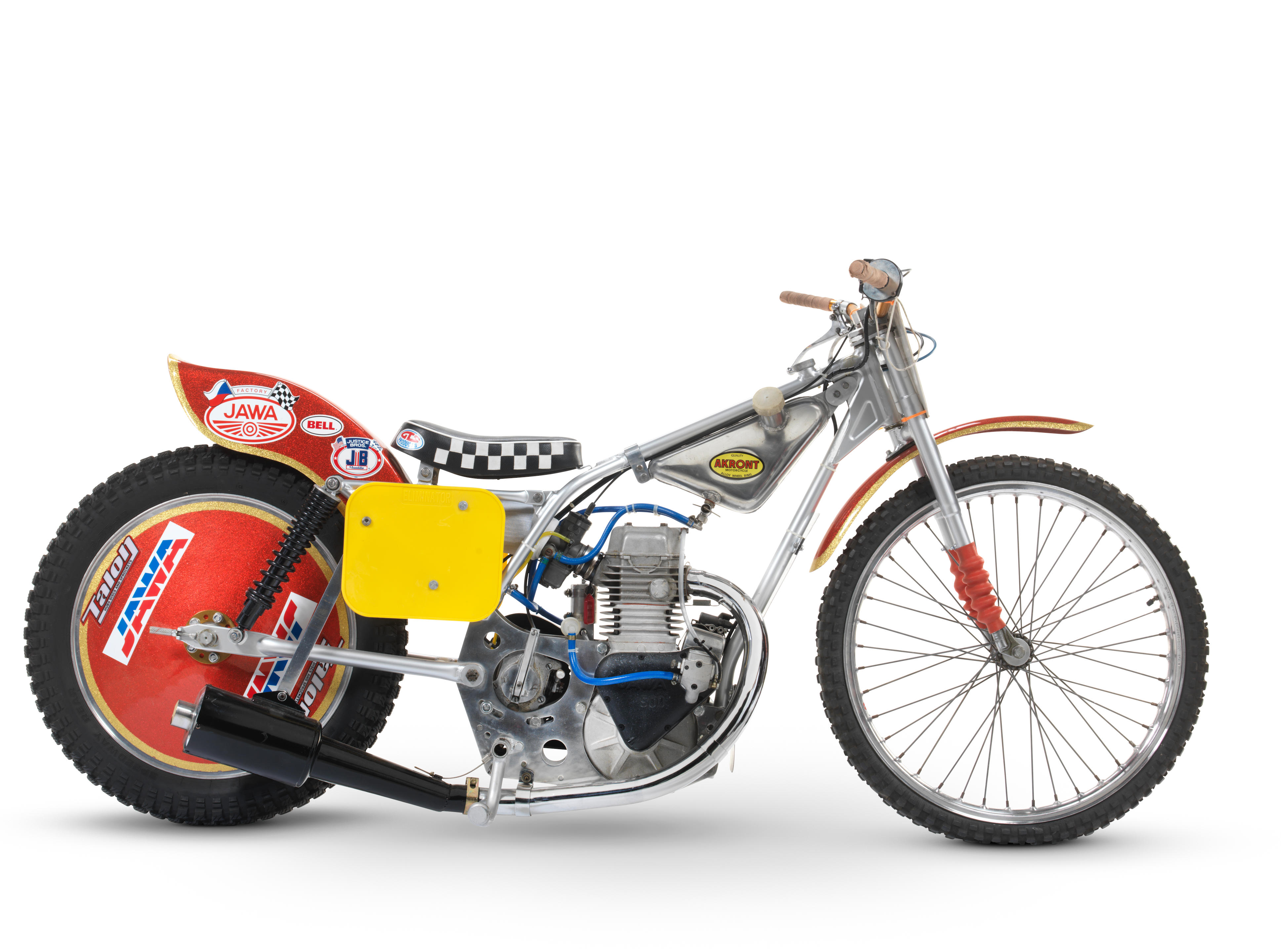
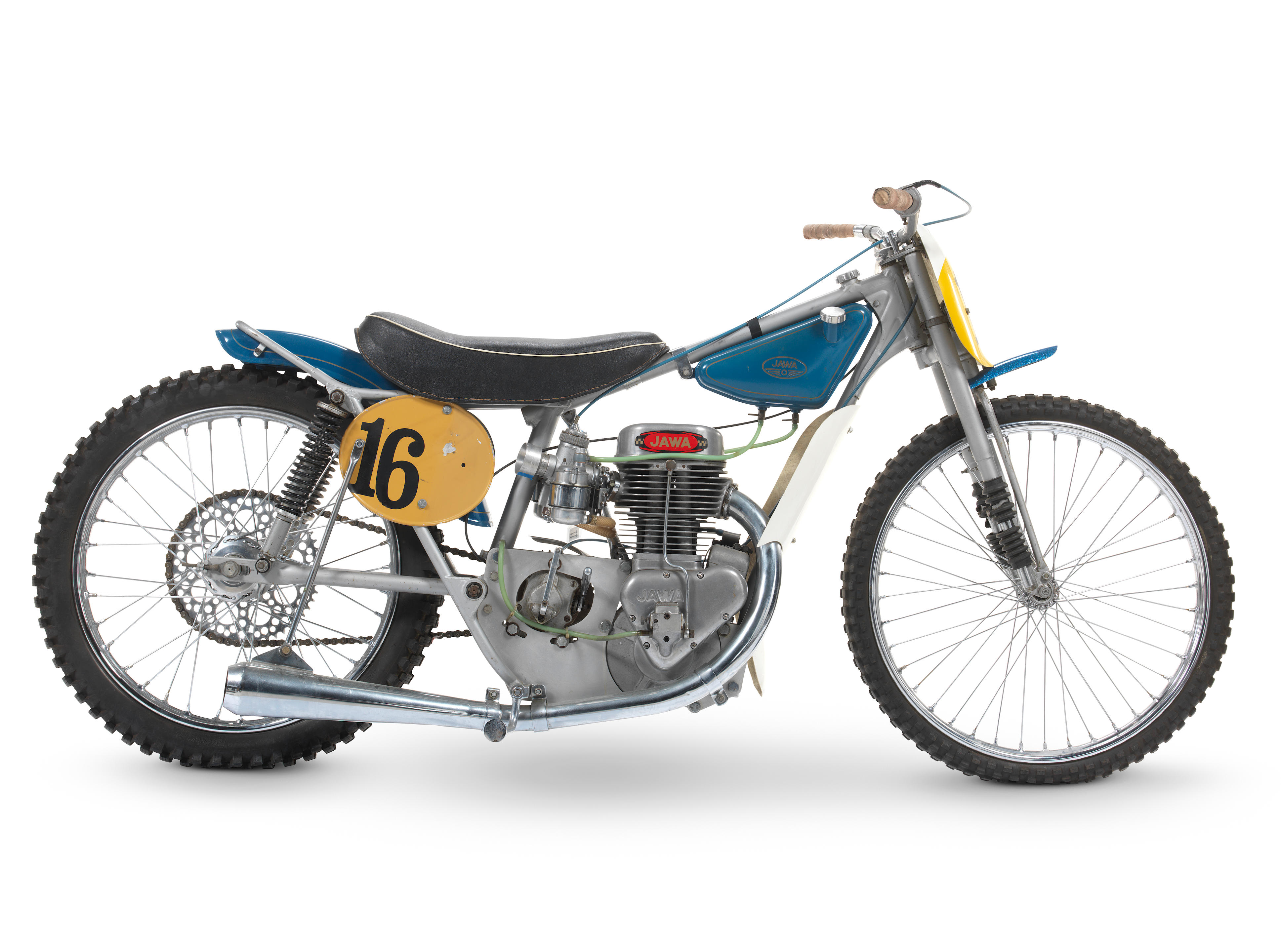
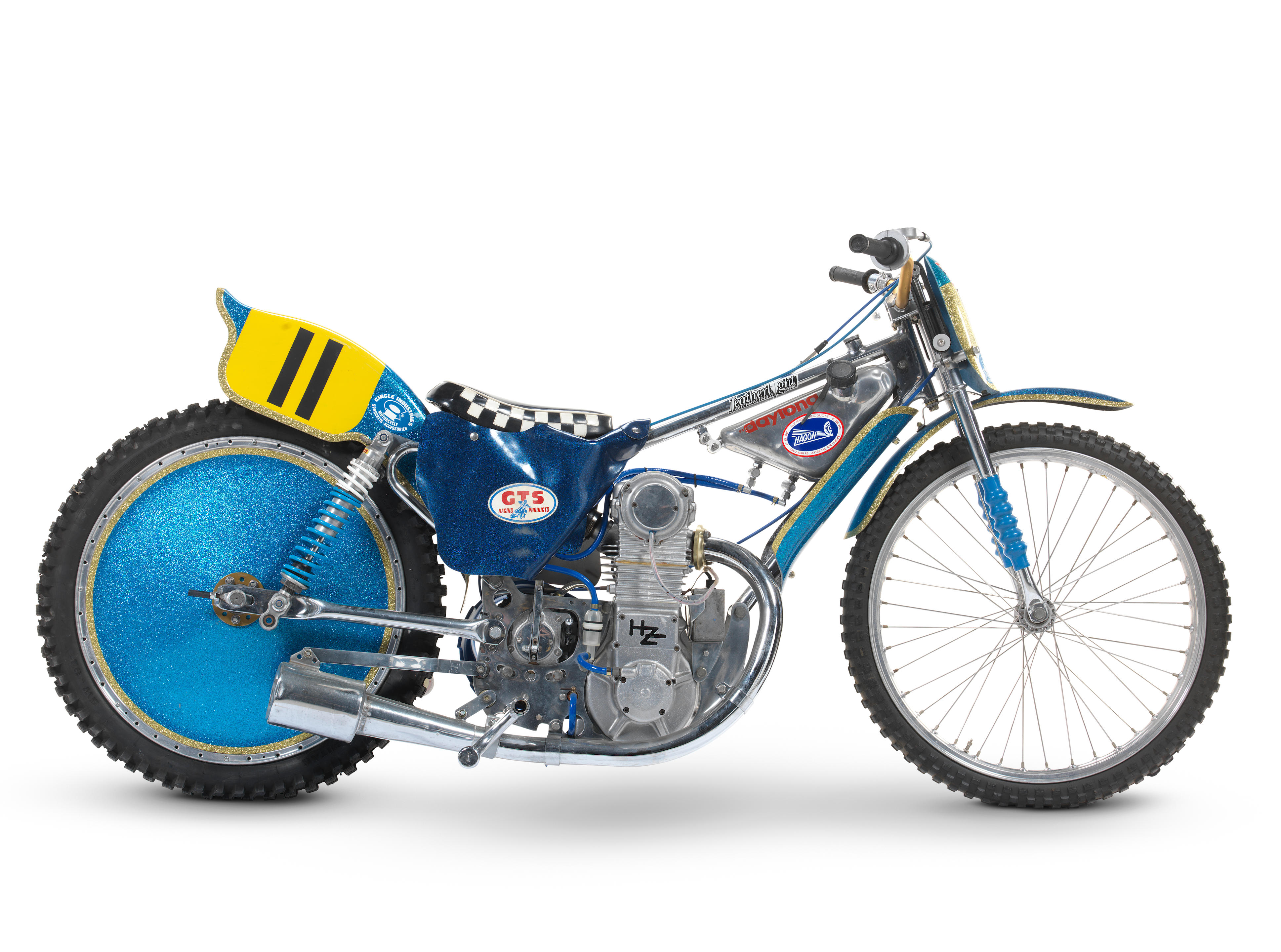
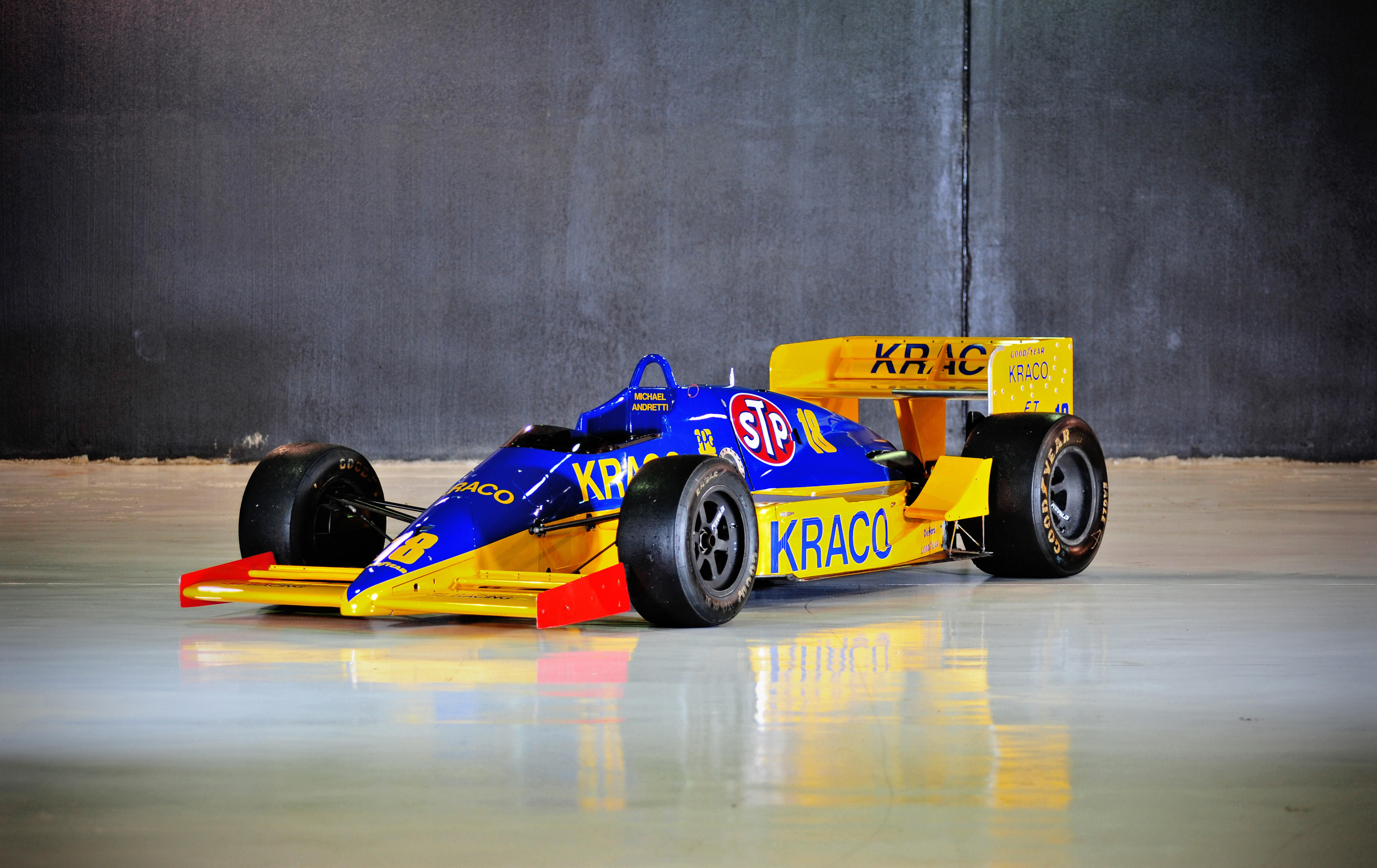

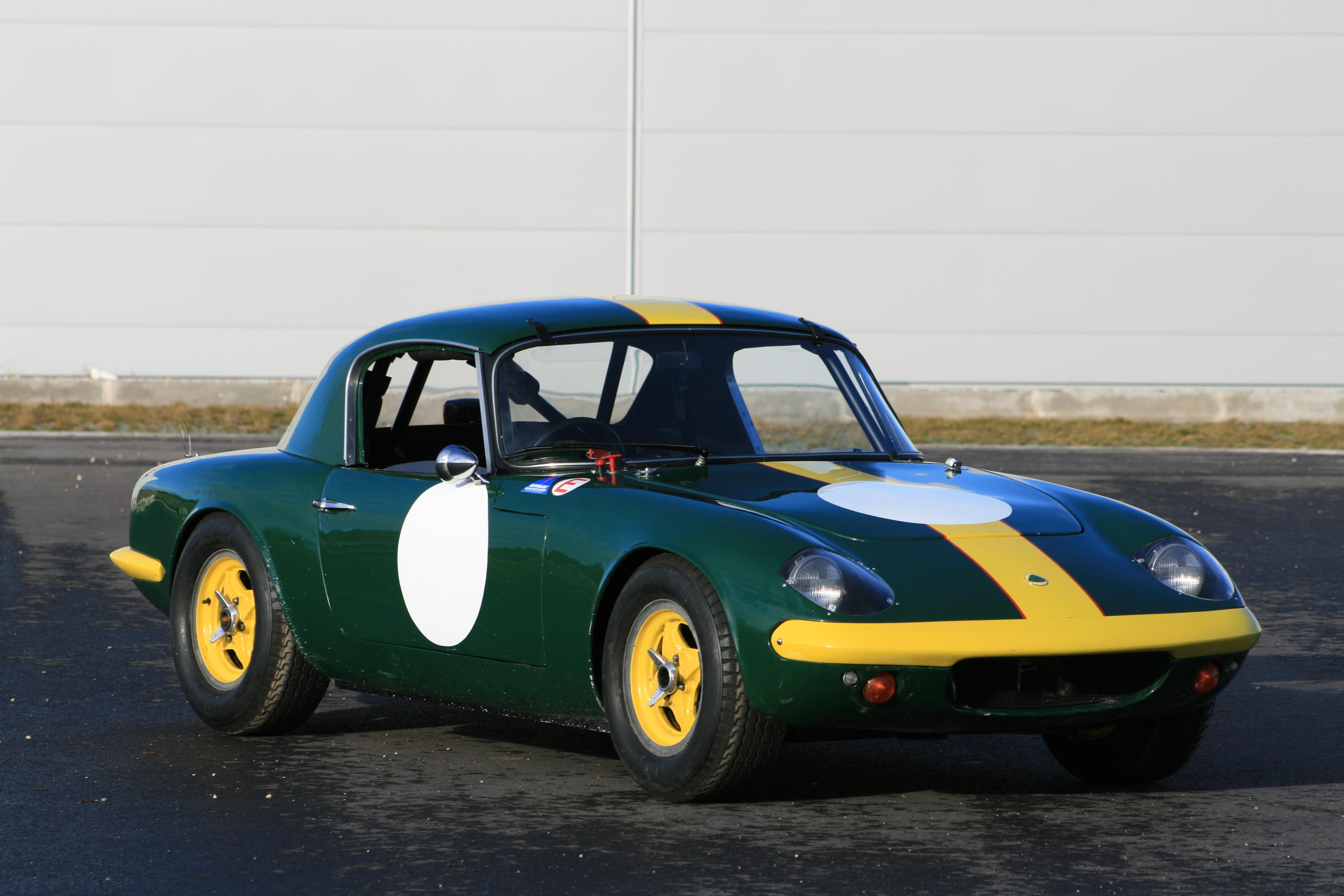

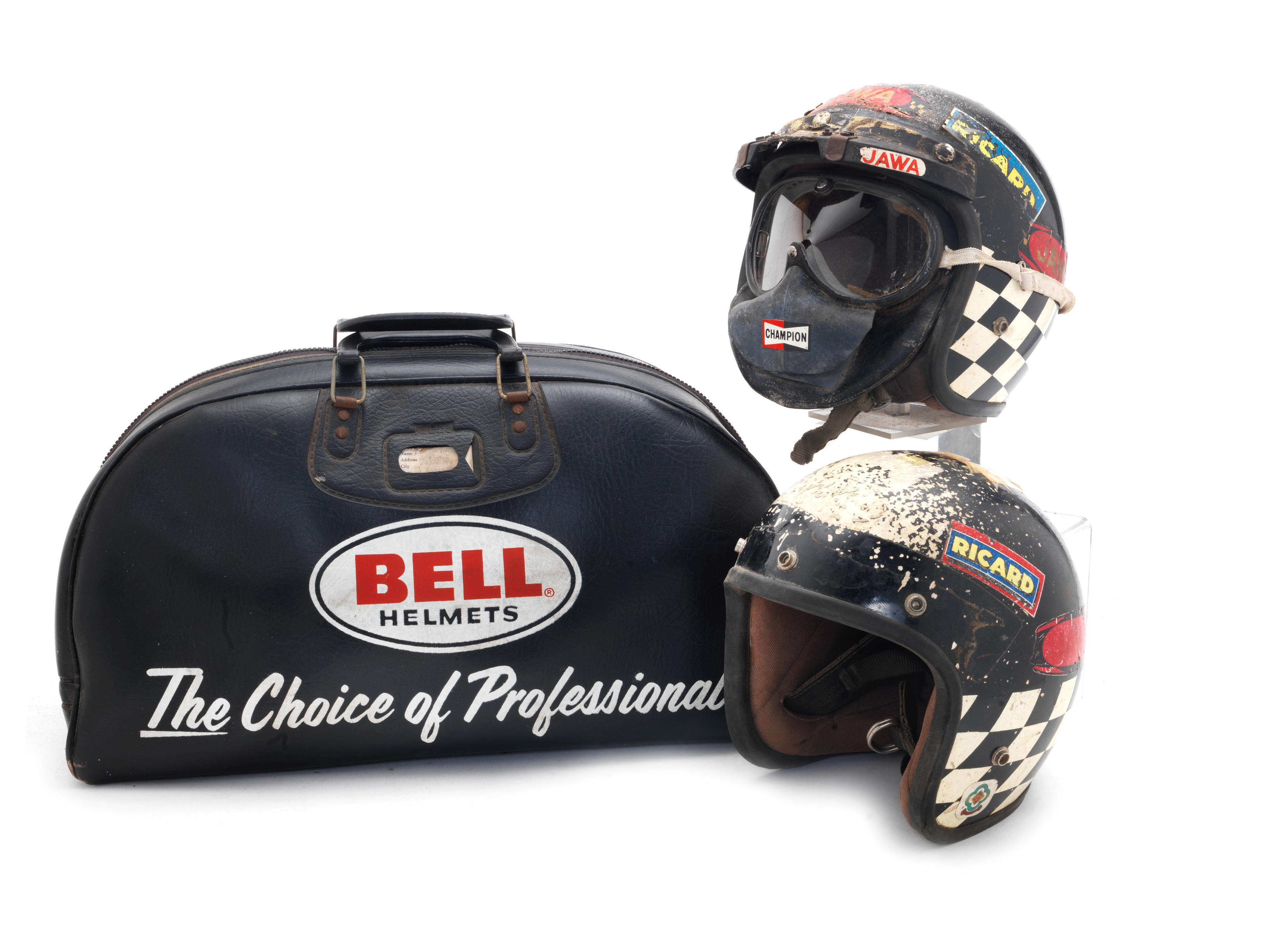
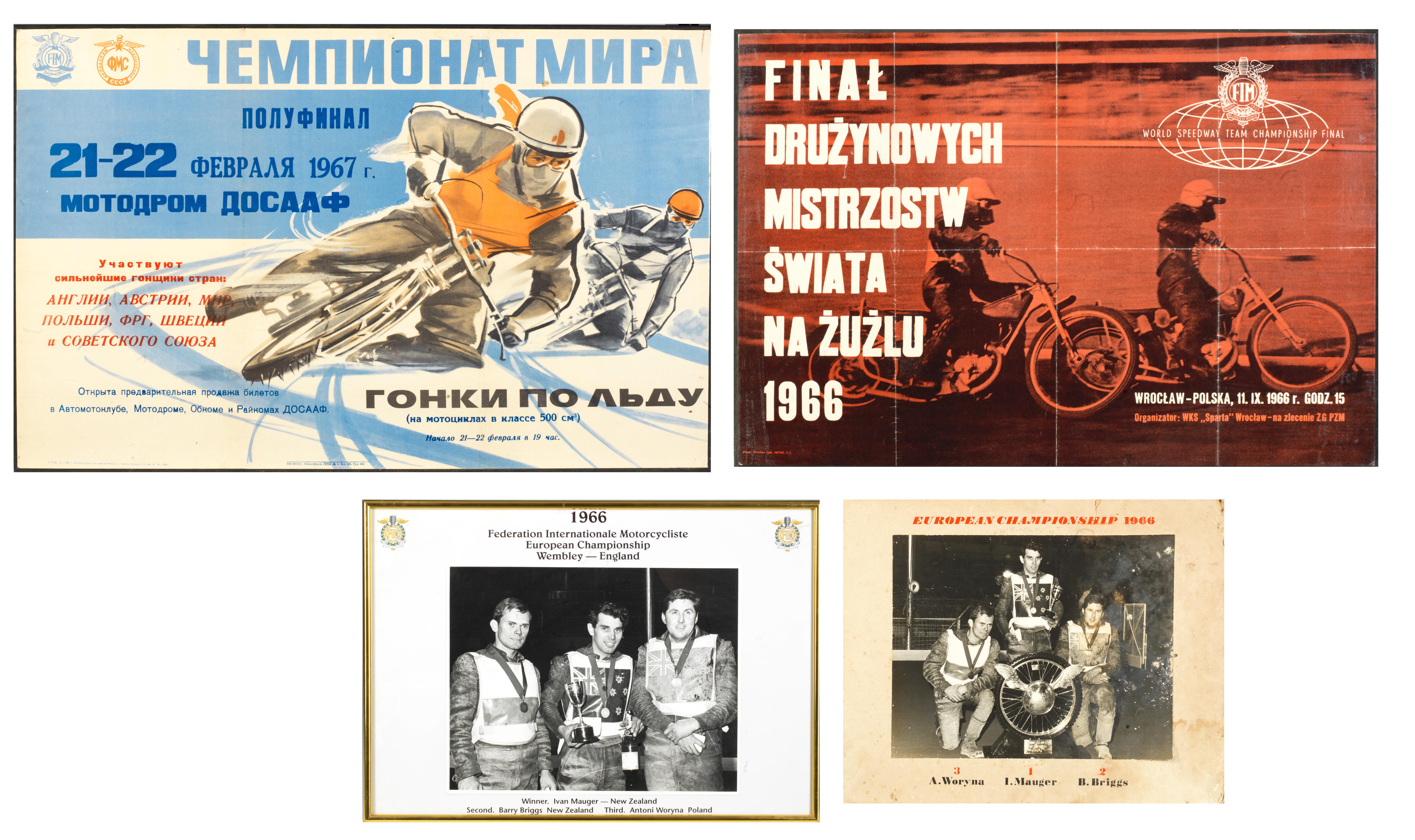
Try LotSearch and its premium features for 7 days - without any costs!
Be notified automatically about new items in upcoming auctions.
Create an alert